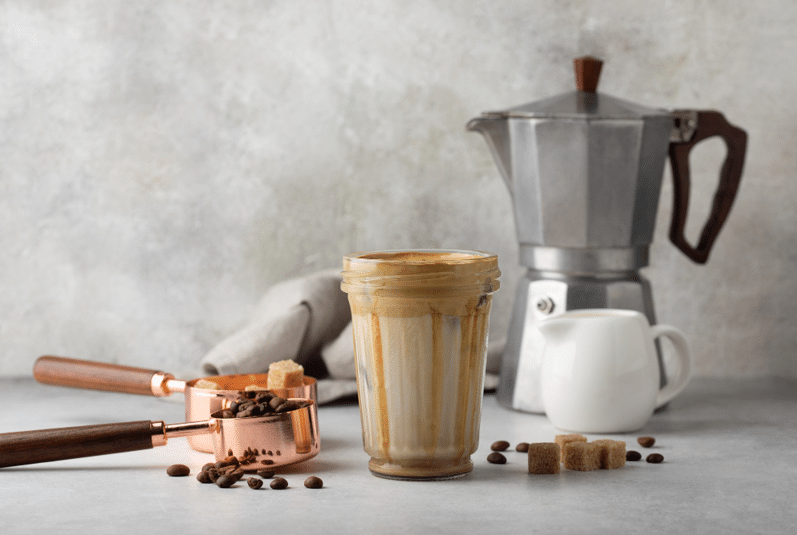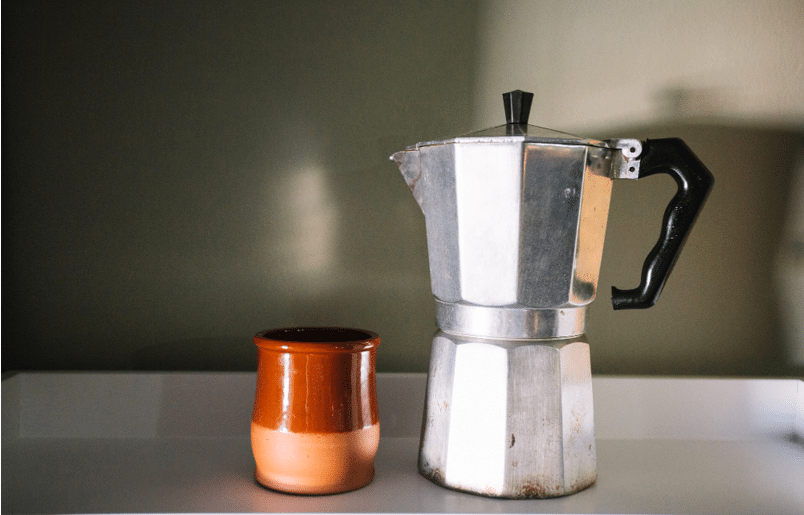How long can you leave water in the coffee maker reservoir? Discover the ideal time, the risks of stale water, and tips for keeping your coffee fresh.
How Long Can You Leave Water in a Coffee Maker Reservoir? What You Need to Know
Mornings can be really stressful, especially when we have to wake up and go straight to work. This is why many of us try to figure out ways to save some time from our morning routine by preparing things the night before.
If you are one of us—and you probably are otherwise, you wouldn’t have landed on this article—then maybe you do one more thing: you fill up the water reservoir of your coffee maker, hoping to get a jumpstart on tomorrow’s brew.
But how long is it safe to leave water sitting in that reservoir? Do you know? Well, guess what! It’s shorter than you might think!
So, read on to find out how long you can leave water in the coffee reservoir.
How Long Can Water Sit in the Coffee Reservoir?
Now, let’s examine this question in depth and see first what happens when water is left in the coffee machine’s reservoir.
The Water Goes Stale
Water is supposed to move. In its essence, water is movement. When it sits without circulation or use—like being in a coffee maker’s reservoir for too long—it can go stale.
Stale water attracts impurities and tastes flat. Think of small ponds or open tanks of water that become smelly and dirty after a while if water is not renewed.
The same happens – analogically – with the water left in the coffee maker’s reservoir. While a few hours to overnight is generally acceptable, things can get questionable after 12 to 24 hours.

Image by Freepik
Bacteria and Mold Grow
Coffee maker reservoirs that aren’t cleaned and dried regularly can become cozy environments for bacteria and mold.
The stagnant water, with both the warmth and darkness found there, creates the perfect conditions to nest and help these unwelcome guests multiply within hours.
When you leave water in your coffee maker reservoir longer than 24 to 48 hours, you will probably make room for microbial growth. As a result, it can potentially affect not only your coffee’s taste but your health too!
Minerals Build-Up
Another thing that happens when water sits for too long in your coffee machine is scaling. If you use tap water in particular or another type of water with minerals.
Minerals can settle at the bottom of the reservoir, leading to blockages, and unwanted stains. Not to mention that they can affect your coffee maker’s performance and alter your coffee’s taste.
So, how long can water sit in the coffee maker’s reservoir?
Having all the above in mind, the best thing you can do is empty your coffee maker’s reservoir each time you make coffee. If this isn’t convenient, then make sure you change the water ideally after 12 hours or after 24 hours at the latest.
To make it easier to remember, either change out the water every morning before brewing a new cup of your favorite drink. Also, you can add fresh water the night before going to sleep for the morning when you wake up.

4 Practical Tips for Water Freshness
Here are some useful tips to help you keep things fresh, take care of your coffee maker, and enjoy tasteful coffee.
- Empty the reservoir daily: As already stated, remember to pour out any unused water after brewing.
- Use filtered water: Switch tap water with fresh, filtered water to reduce mineral deposits and improve your coffee taste.
- Clean the coffee maker regularly: Now and then – preferably once a week, clean the container well by washing it with soap or mixing vinegar with water and leaving it to sit for a while.
- Check for mold and scale: If you empty your coffee maker’s reservoir daily and clean it thoroughly at least per week, you eliminate the chance of white mineral buildup or slimy residue appearance. However, it’s good to check sometimes for any unwelcome signs.
Frequently Asked Questions
Can I use tap water in my coffee maker
Yes, but over time, it will have an impact on both your coffee taste and the coffee maker’s look (on the inside that is).
On the contrary, filtered water is a better choice due to its reduced minerals and the deposits it creates.
How often should I clean my coffee maker reservoir?
Once a weak will be ok. But for daily use or if more than one persons use the same coffee maker it is recommended to clean it more often than once a week.
What happens if I forget to change the water for a few days?
Try not to forget it. That didn’t quite help you, right?
Well, in case you forget to replace the water within 24 hours, you risk stale water, bacterial growth, and mineral buildup. Which in turn can not only affect the coffee taste but your machine’s health also.
How Long Can You Leave Water in a Coffee Maker’s Reservoir?
The longer, the worse. The best choice is to leave no water in there after making your coffee.
But we all know that this may not be your strong point, so you can choose the second-best solution. Leave it overnight – so you can find your coffee maker (almost) ready first thing in the morning. Also, it is important to make sure coffee less acidic. You can follow our 7 proven ways for keeping coffee less acidic.
Remember that keeping the water you are going to use for your coffee fresh will ensure your beverage tastes better and your machine functions properly.
Ready for another cup of coffee?










